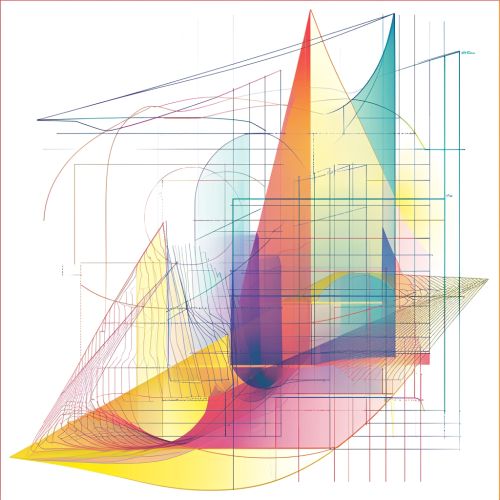Measurable Function
Definition
In the field of mathematics, particularly in the study of measure theory, a measurable function is a function between two measurable spaces which preserves the structure of the spaces in the sense that the preimage of any measurable set is measurable.
Introduction
The concept of a measurable function is fundamental in measure theory and its applications, including probability theory and ergodic theory. The term "measurable" in this context does not refer to the ability to measure in the everyday sense, but rather to the function's compatibility with the underlying measure space.


Measure Spaces
A measure space is a set equipped with a sigma-algebra and a measure. The sigma-algebra, denoted as Σ, is a collection of subsets of the set, satisfying certain properties. The measure, denoted as μ, is a function that assigns a non-negative real number to each subset in the sigma-algebra.
Measurable Spaces
A measurable space is a set equipped with a sigma-algebra. It is a more general concept than a measure space, as it does not require the existence of a measure. Every measure space is a measurable space, but the converse is not necessarily true.
Measurable Functions
A function f from a measurable space (X, Σ) to another measurable space (Y, Τ) is said to be measurable if for every set B in Τ, the preimage of B under f, denoted as f^(-1)(B), is in Σ. In other words, the function f is measurable if it pulls back measurable sets to measurable sets.
Properties of Measurable Functions
Measurable functions have several important properties. For instance, the sum, difference, product, and quotient (provided the denominator is not zero) of two measurable functions are also measurable. The composition of two measurable functions is measurable. The limit of a sequence of measurable functions is measurable, provided the limit exists pointwise.
Types of Measurable Functions
There are several types of measurable functions, including simple functions, step functions, and integrable functions. Each of these types has its own set of properties and applications.
Simple Functions
A simple function is a function that takes on only a finite number of values. Every simple function is measurable, and simple functions play a crucial role in the construction of the Lebesgue integral.
Step Functions
A step function is a function that is constant on each interval in a finite partition of the domain. Every step function is measurable, and step functions are particularly useful in numerical integration.
Integrable Functions
An integrable function is a function for which the Lebesgue integral is defined and finite. Every integrable function is measurable, and the concept of integrability is central to the theory of the Lebesgue integral.
Applications of Measurable Functions
Measurable functions are used in various areas of mathematics and its applications. In probability theory, random variables are modeled as measurable functions. In ergodic theory, measurable functions are used to study dynamical systems. In functional analysis, measurable functions are used in the study of Lp spaces.
